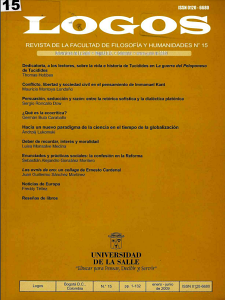Abstract
This essay is dedicated to the subject of the protestant confession within the framework of the knowledge and the thesis about power of Foucault. For doing so we find support in two different traditions: On one side, in the sociology of religion and the analysis of the beginnings of Capitalism in the reformist societies, by Weber. And, on the other side, in Foucault’s political analysis about pastoral as a power strategy that is tied to the question about subjectivity. The hypothesis is that the protestant confession can be analyzed under the light of the postulates about power. This in order to show how the question about the use of time and discipline in everyday activities is related to questions that are, partly, in the origin –in genealogical sense– of the devices of political determination and the social segmentations of the modern societies. In the first part we are interested in seeing how the protestant confession constitutes a strategy of power that articulates the subjects to the problem of the government of self. The objective is to describe the emergencing of certain confessional modalities related to casuistical manuals or treaties on the art of governing itself that derives in practices of control of the activity. Then, we take care of the problem of the subjectivity by characterizing it. This, by means of the concept of fold. As a closing aspect, we take the opportunity of the reflections about the protestant confession to respond to the question: how do statements become social practice?Downloads
Download data is not yet available.



